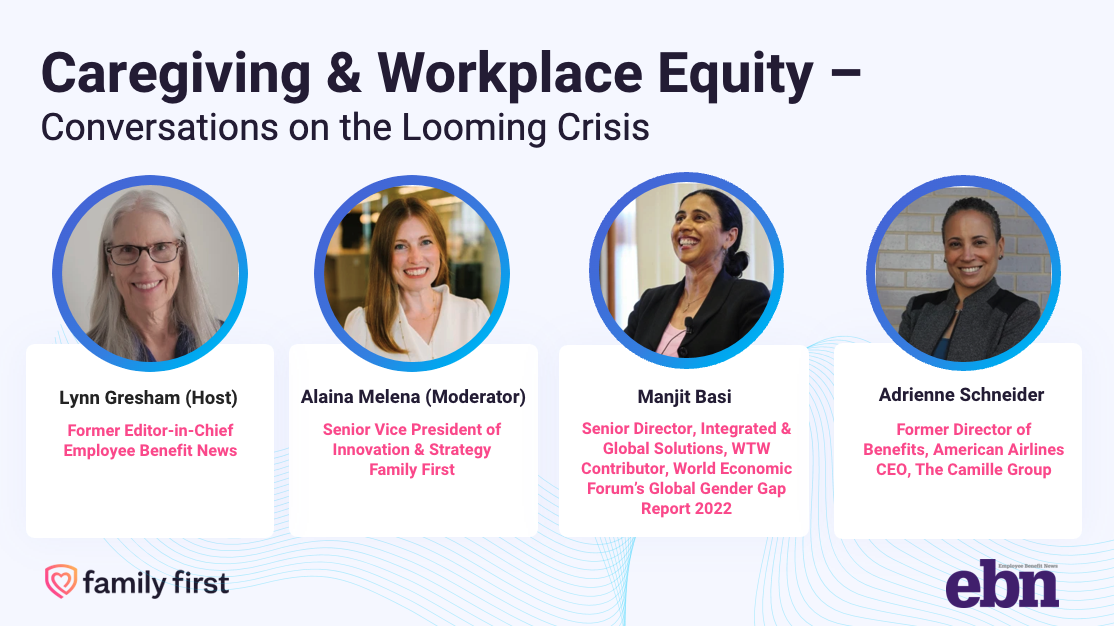5 Ways Caregiver Employees are Strengthening Your Company
Caregivers bring a unique set of strengths and skills that contribute to the success of a company. And because so many Americans are working caregivers, there’s a lot of potential to recognize that you may not yet be aware of.
Today, 73% of U.S. employees are caring for a child, parent, or friend. That means there are several employees on your team right now balancing caregiving responsibilities while working full-time. While acknowledging that many employees face caregiving challenges, it’s also crucial to recognize the strengths caregiver employees bring to an organization.
As an organization, Family First is dedicated to uncovering and solving every caregiving challenge, so we know the strength of caregiver employees. Here are 5 ways that your caregiver employees are strengthening your company and why employers should be supporting this essential part of the workforce.
#1: Caregivers are Time Management Magicians
Caregivers are masters of time management. Caregiving can feel like a second full-time job, so balancing the demands of caregiving responsibilities with their professional duties hones their ability to prioritize tasks efficiently. This skill is a tremendous asset in the workplace, where deadlines are critical, and multitasking is often required. Caregivers excel at juggling multiple responsibilities, making them valuable team members who can prioritize and execute on the most critical tasks.
#2: Caregivers are Adaptable
Caring for someone with unique needs teaches caregivers to be resilient and adaptable. These qualities are invaluable in the business world, where unforeseen challenges are inevitable. Caregivers bring a level of grace under pressure, demonstrating the ability to pivot and find solutions when faced with unexpected obstacles. Their adaptability contributes to a positive and supportive workplace culture, fostering a sense of camaraderie among team members.
#3: Caregivers are Empathetic
Caregivers are naturally empathetic individuals. Their experiences in providing care cultivate strong interpersonal skills, enabling them to connect with colleagues and clients on a deeper level. This empathetic approach can enhance team dynamics, improve communication, and foster a more inclusive workplace. Employers who recognize and value these interpersonal skills can build stronger, more cohesive teams.
#4: Caregivers Know the Value of Finding Unique Solutions
Anyone who has ever faced a caregiving challenge knows that the path to a solution isn’t always linear (or easy). When presented with roadblocks or an abundance of resources, it’s easy to get overwhelmed. Caregivers know how to dig deeper and find alternative solutions that others might overlook. When faced with a challenge, taking a step back and determining what problem needs to be solved first is a frequently used skill by caregivers. The caregivers we support are always looking for the right solution and don’t give up until they’ve found the one that will serve their situation best.
#5: Caregivers Can Solve Complex Problems
Navigating the complexities of caregiving requires caregivers to be problem solvers. The ability to think critically transfers easily to the workplace. Caregivers bring a fresh perspective to organizations, offering innovative approaches to challenges and contributing to a culture of continuous improvement.
Caregivers are heroes and make incredible colleagues. Take a moment to thank the caregiver employees at your organization for their time, adaptability, empathy, creativity, and problem-solving prowess.
Why Should You Support Your Caregiver Employees?
Recognizing and supporting caregivers in the workplace isn't just the right thing to do—it's a strategic one. By acknowledging and accommodating the unique strengths of caregivers, employers can:
- Attract and Retain Top Talent: In a competitive job market, offering caregiver-friendly policies can set an organization apart and attract top talent seeking a supportive work environment.
- Improve Employee Satisfaction and Engagement: Employees who feel supported and understood are more likely to be satisfied and engaged in their work. This can lead to increased productivity and reduced turnover.
- Enhance Diversity and Inclusion: Caregivers come from diverse backgrounds and experiences. Supporting them contributes to a more inclusive workplace culture that celebrates diversity.
- Boost Corporate Reputation: Companies that prioritize employee well-being, including support for caregivers, enhance corporate reputation. This can attract customers, clients, and partners who value unique and inclusive benefits.
There are more than 50 million working caregivers in the U.S., and their strengths are assets that organizations should foster and celebrate. Employers who actively support caregivers not only create a more compassionate workplace but also tap into a pool of dedicated, resilient, and highly skilled individuals.
It's time for businesses to recognize the immense value caregivers bring to the table and implement benefits that support and celebrate these essential members of the workforce. In doing so, you’re not only fostering a positive work environment, but also position yourself as a leader in an increasingly competitive landscape.


